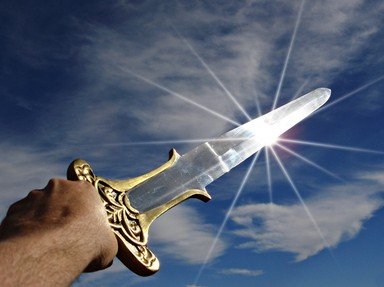Quiz Answer Key and Fun Facts
1. A - 1805 - Napoleonic Wars: Napoleon regarded this battle as his greatest victory. Which of these was it?
2. B - 1314 - English-Scottish Wars: Robert the Bruce led the Scots to victory against the English under Edward II, securing a fully independent Scotland for nearly 300 years. What is the name of this battle?
3. C - 1346 - Hundred Years' War: The French knights learned to their cost the power of the English longbow as a decisive weapon on the battlefield. Edward III's small English army won an unlikely victory against vastly superior forces. Where?
4. D - 1954 - French Indochina War: Which decisive victory for the Vietminh over the French signalled the beginning of the end of French colonial rule in Vietnam, and in Indo-China as a whole?
5. E - 499 BC - Persian-Greek Wars: The Persians inflicted a massive defeat on the Athenian forces, to such an extent that the Athenians withdrew their fleet from Asia Minor. Where was this battle?
6. F - 1861 - American Civil War: Which bloodless battle signalled the start of one of the bloodiest wars in history?
7. G - 334 BC - Macedonian Conquests: Where did Alexander the Great inflict the first of many defeats on the might of the Persian Empire?
8. H - 1066 - Norman Conquest: Harold II, The last Anglo-Saxon king of England, was slain by an arrow in his eye (according to popular legend) and William of Normandy began the last successful invasion of Britain. At which very famous battle did this happen?
9. I - 1879 - Zulu-British War: Where did the fierce Zulu warriors under King Cetewayo inflict a humiliating defeat on British forces?
10. J - 1806 - Napoleonic Wars: At the battle of Jena, Napoleon inflicted a crushing defeat on the Prussians, resulting in a casualty ratio of around 4:1 in his favour.
11. K - 1943 - World War Two: Which crucial Russian victory over the Germans was a turning-point in the war, as well as being the biggest tank battle in military history, with 1,200 tanks slugging it out?
12. L - 1571 - Venetian-Turkish Wars: At which battle was the advance of the Ottoman Empire into the Western Mediterranean halted for good?
13. M - 490 BC - Persian-Greek Wars: Which battle was so decisive a defeat for the Persians that they gave up their invasion of Greece?
14. N - 1815 - War of 1812: Future US president Andrew Jackson cemented his reputation as a leader in this, the final battle of the war, inflicting a heavy defeat on the British forces. What was the name of the battle?
15. O - 1898 - War for The Sudan: Where did Sir Herbert (later Lord) Kitchener lead a combined British and Egyptian force to a resounding victory over the dervishes?
16. P - 1904 - Russo-Japanese War: Where did the Japanese launch a successful attack on the Russian Pacific Fleet, using torpedoes to devastating effect?
17. Q - 1759 - French and Indian War: Where did the British under General Wolfe defeat the French for ultimate control of what was to become Canada?
18. R - 1879 - Zulu-British War: Shortly after their earlier defeat by Zulus, where did a tiny British force of 139 men successfully defend an outpost against 4,000 Zulu warriors?
19. S - 1487 - Wars of the Roses: Considered by most historians to be the final battle of England's 'first civil war', where was it that Henry VII defeated the rebel Yorkist forces of pretender to the throne, Lambert Simnel?
20. T - 480 BC - Persian-Greek Wars: Although a Persian victory, which battle is most celebrated for the heroic defence of a crucial pass by 300 Spartans?
21. U - 1879 - Zulu-British War: What was the final battle of the war, which saw the Zulus comprehensively defeated by the British?
22. V - 1916 - World War One: An infamous indictment of the attritional warfare that typified this conflict. It was here that the German Chief of Staff, Erich von Falkenhayn, intended to, "bleed the French Army to death". He almost succeeded, at great cost to his own army. Where was it?
23. W - 1815 - Napoleonic Wars: Napoleon's last battle ended in his disastrous defeat. The Duke of Wellington, the Allied victor, famously said it was, "a damn' close run thing". Named after a small village in Belgium, where was this battle?
24. Y - 1781 - American War of Independence: As far as active campaigning was concerned, which American victory under George Washington signalled the end of the Americans' fight to free themselves of British colonial rule?
25. Z - 202 BC - Second Punic War: Where did the Roman general Scipio defeat Hannibal, signalling the beginning of the end of Carthage?
Source: Author
Plumbus
This quiz was reviewed by FunTrivia editor
bloomsby before going online.
Any errors found in FunTrivia content are routinely corrected through our feedback system.

